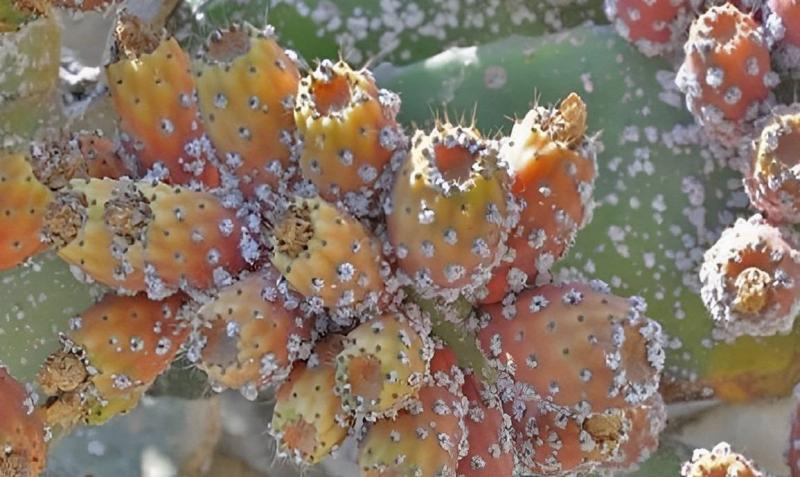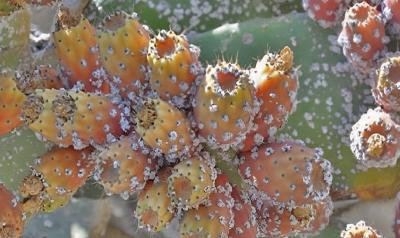Agricultural experts have pointed out that "the cochineal insect has become a significant threat to the prickly pear crop in Tunisia, as it devastates large areas of farms and raises major economic concerns." A report from the Tunisian Forum for Economic and Social Rights, titled "Environmental Rights, Climate Change, and Environmental and Social Justice," indicated that the pest, discovered for the first time in the coastal region of Mahdia in 2021, has quickly spread to several areas including Kairouan, Monastir, Sousse, and Nabeul.
Fouzi Ziani, an expert in agricultural policies, stated, "This cochineal insect affects the prickly pear, which originated in Mexico and then spread to Morocco in 2015, and to Tunisia in 2021." Salma Jreidi, a resident of Sfax in southern Tunisia, walks heavily as she reflects on the prickly pear she planted, which the cochineal insect has destroyed, turning it into dead, dry trunks. Salma said, "The prickly pear tree was large; I planted it to protect myself from the valley because my house is on the edge of the valley. This disease came to destroy it, and I was greatly affected by that. The whole village used to eat from the fruits of the prickly pear; they would take one fruit and eat it. This is the will of God, even the part that is growing again is affected by this disease."




